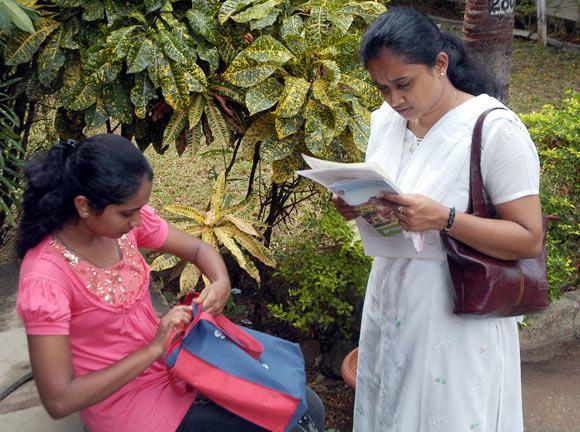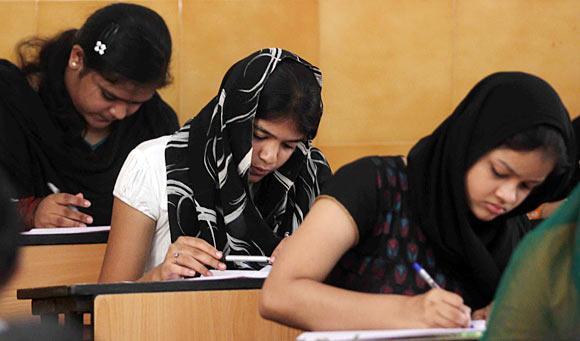
Vivek Khanna, an IIT alumnus and education consultant based out of Mumbai tells you how you can optimise the time at hand to score well in the JEE Advanced.
Students who cleared the IIT-Joint Entrance Examination Mains on May 7 are qualified to appear for the JEE Advanced which will be held on Sunday, June 2, 2013.
Over 1,50,000 students qualified for the JEE Advanced this year.
According to the new pattern that was implemented last year, Class 12 board marks and JEE scores will carry 40 and 60 per cent weightage for engineering admissions respectively.
Here are a few tips for students appearing for the JEE Advanced this year:
Optimise your revision
Students should revise the notes written in the classrooms and go through the solutions of the problems they have solved earlier.
Revise and complete the most scoring topics first. For example in Physics, optics, thermodynamics, waves, modern physics and electromagnetism should be completed first.
Then you should shift to mechanics. In mathematics you should have a firm command on calculus and coordinate geometry first and only then should you shift to probability, vectors, complex numbers. In chemistry, physical chemistry should be mastered before inorganic and organic chapters.
For inorganic and organic, Class XI and XII school books are the best.
Reverse engineer while you study. Focus on chapters that'll fetch you more marks.
While revising, refer the previous year's problems asked from a topic in the exams.
Prepare for similar type and toughness of questions first before getting on to more complex questions.
Aim for a balanced score
You have to ensure that you have a balanced score in each subject. Generally with a vast majority of students, two topics are strong and one is relatively average.
Although you can secure a good rank if you are able to master all the three, a decent rank is achieved only if you are able to score well in two subjects and above average in one. So be confident and ensure that you achieve at least above average marks in your weakest subject.
Average cut-off for JEE Advanced over the past three to four years has been not more than 42 per cent.
Strategise, pick the right questions
Remember you don't need to crack every question to be successful.
You just need to crack 4.2 questions out of 10. So don’t panic if you are not able to crack a few questions.
Remember Sachin Tendulakar as he leaves the good balls and strike the weak ones. You are supposed to leave good balls and strike the weaker ones.
Know your forte before you enter the examination hall. Understand well what you know and what you don’t know.
This realisation will help you strategise your test taking skills. First strike on the sums of the topic you are confident about and then move on to the topics you are least confident of.
Mock test your performance
Students have the habit of cramming and learning as many new concepts as possible. At the same time, most of them fail to take mock tests before the actual exams.
Most of you must have thought of completing the syllabus before taking practice tests. Unfortunately you will never be able to finish the portion. The idea is to score as much as possible with whatever limited knowledge you have.
Take multiple mock tests (at least five to six) before you appear for the final exam.
Take these mock tests sincerely. With every test, analyse your performance, the mistakes you've made and make a note of the chapters or subject areas you need to focus on.
You will realise that the more number of mock tests you take the more you are able to improve your score.
Please click NEXT to continue reading...

On the day of the exam, follow these strategies: